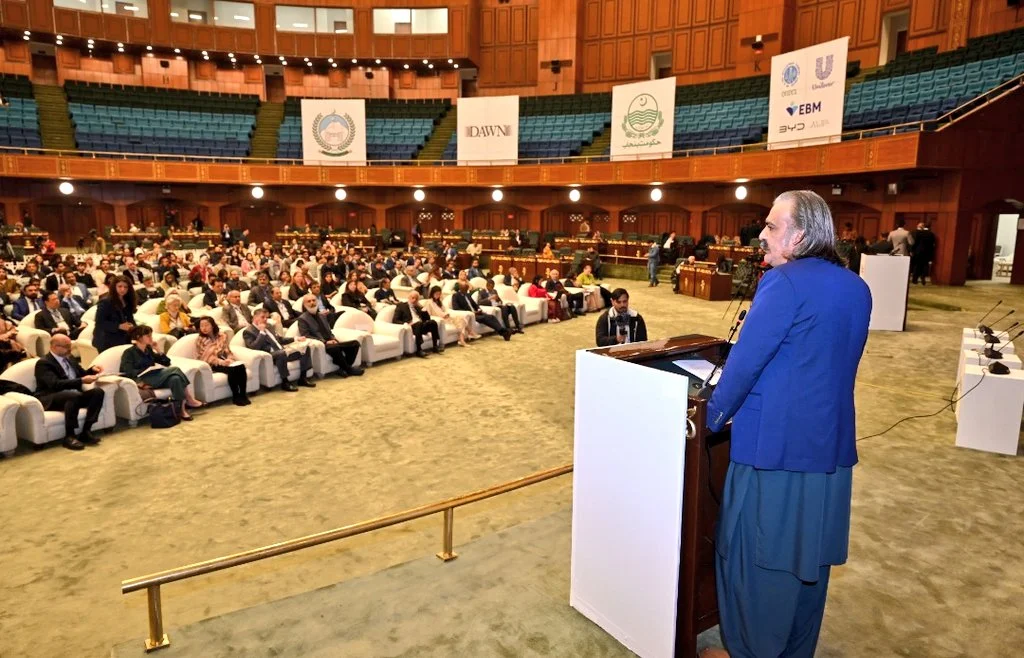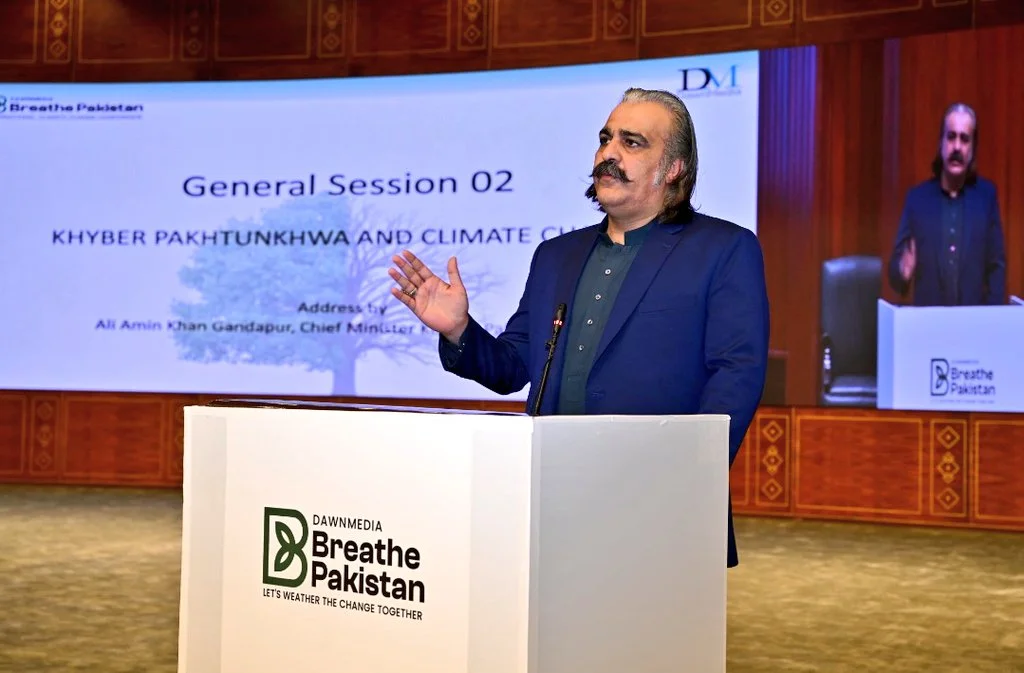Khyber Pakhtunkhwa (KP) is making remarkable progress in environmental conservation and climate change management.
Chief Minister Ali Amin Gandapur addressed the International Climate Change Conference “Breathe Pakistan”, where he shared insights on the province’s commitment to green initiatives, forest conservation, and sustainable energy projects.

Forest Conservation: A Key Priority
Khyber Pakhtunkhwa is home to 37% of Pakistan’s total forest area, covering around 37,000 square kilometers.
The province contributes 40-45% of the country’s total forests and plays a significant role in absorbing 50% of Pakistan’s carbon emissions.
However, protecting such a large forest area requires an estimated Rs. 322 billion annually, as per international research.
Since 2017, the KP government has spent Rs. 675 billion on forest preservation and expansion. Due to these efforts, forest coverage has increased to 26%, surpassing international environmental standards.
The Value of Carbon Credit:
Khyber Pakhtunkhwa’s forests generate carbon credits worth Rs. 100 billion annually.
The Chief Minister suggested that like India and China, Pakistan should allocate a portion of the National Finance Commission (NFC) Award for forests and carbon credit. In India, 10% of the NFC share is dedicated to forests.
Green Economy and Job Creation:
The government has also created 175,000 green jobs, benefiting local communities while promoting environmental sustainability.
Green Transportation – BRT Peshawar:
One of KP’s biggest eco-friendly projects is Bus Rapid Transit (BRT) Peshawar, which has provided safe and sustainable transport to over 75 million passengers.
The project has significantly reduced carbon emissions, eliminating 124,000 tons of carbon over the last four years.
Solar Energy for a Sustainable Future:
The KP government has introduced Green Budget initiatives, including Rs. 20 billion for free solar systems for underprivileged households. Another Rs. 20 billion has been allocated for providing solar panels at half price.
This year, 661 schools, 183 colleges, and 628 mosques have been shifted to solar energy. The goal is to convert all educational institutions, hospitals, and government buildings to solar power.
Water Conservation and Agriculture Expansion
KP is also focusing on water management and agriculture:
- CRBC Project: Will bring 300,000 acres of barren land under cultivation.
- Mohmand Dam Canal: A Rs. 5 billion project that will irrigate 200,000 acres.
- Small Dams: Four small dams have been completed, providing irrigation for 50,000 acres.
Boosting Olive Oil Production:
To reduce dependency on imported edible oils, KP has started grafting 170,000 wild olive trees, with a future target of one million olive trees.
Health Sector Improvements:
Through the Sehat Card Program, 1.3 million families are receiving free medical treatment. Around 25% of the program’s budget is spent on treating heart diseases.
Additionally, a 250-bed Peshawar Institute of Cardiology has been established for advanced heart care.
A Call for Global Climate Action:
Chief Minister Ali Amin Gandapur emphasized that climate change is a global challenge and requires collective efforts.
He reaffirmed his commitment to making Khyber Pakhtunkhwa a ‘Green KP’ and acknowledged the support of international organizations in achieving this goal.
Conclusion:
Khyber Pakhtunkhwa’s climate-friendly policies, green economy initiatives, and renewable energy projects set a strong example for other provinces and nations.
With continuous efforts, KP is on its way to becoming a model region for environmental sustainability and economic growth.

